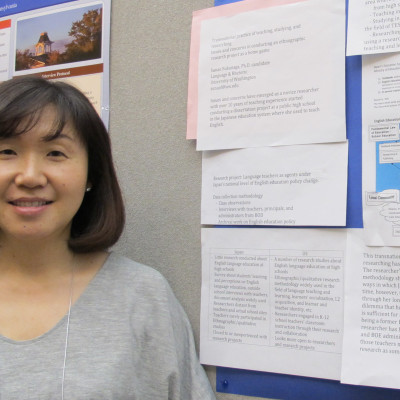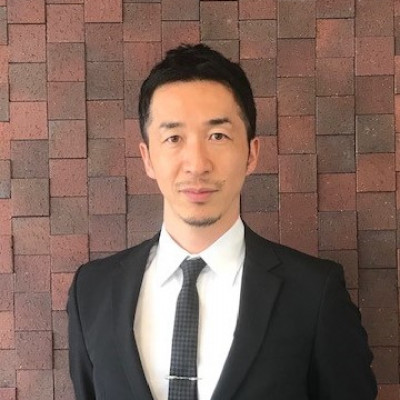Sessions / Location Name: E26: DO NOT RECORD
Physical Location
Location: E26
Building: Miwa Campus Building < The University of Nagano
A quantitative exploration of teacher demotivation in eikaiwa #2879
Teacher demotivation negatively affects the well-being of educators and can increase teacher burnout and turnover intention. Factors contributing to teacher demotivation include a lack of autonomy, interpersonal difficulties in the workplace, inadequate training, and few chances for career progression. In the eikaiwa context, few studies have directly explored teacher demotivation. Taylor (2017, 2019) qualitatively demonstrated demotivation among teachers from both large eikaiwa chains and independent schools alike, yet the depth and scope of the phenomenon within the industry remains unclear. In order to fill this gap, a 32-item Likert scale questionnaire exploring autonomy, training, career progression, interpersonal relationships with colleagues and managers, and turnover intention was developed and distributed online between December 2021 and February 2022. Results from 89 respondents were collected and analyzed. It was found that teachers were most demotivated by limited career progression, lack of training opportunities, and reduced autonomy. They were least demotivated by interpersonal relationships with colleagues. The presenter will consider these results in relation to demographic factors such as gender and school type. Implications for eikaiwa educators will also be discussed.
Reimagining course outcomes using a distributed leadership approach #2882
This presentation will describe the multi-year process, starting in 2020, of revising the course outcomes of years 1 and 2 in the language institute of a university in Japan, originally developed during an earlier curriculum renewal based on a Multiliteracies framework (New London Group, 1996) to produce culturally and linguistically diverse students (Johnson et al. 2015). The revision process utilized a distributed leadership (Hallinger & Huber, 2012; Spillane, 2006) procedure to give various levels of stakeholders within the institution, from first-year lecturers to coordinators and principal lecturers, the opportunity to collaborate to develop and clarify more specific aims, and address gaps and redundancy to better streamline the outcomes across the courses in the first two years. The final two years of content-based elective courses were also considered, modeling the existing format required for those year levels, to provide better flow throughout a student's whole four-year experience. This cooperative effort to reimagine the course outcomes aims to make it easier for instructors to teach their classes, leading to better student learning outcomes. The presenters, instructors at the institute, will share the multi-step review process and explain how instructor input was incorporated throughout.
Struggle and Hesitation: Identity Dilemmas of Japanese HS English teachers #2910
Language teacher identity research has unpacked how a teacher’s identity influences their classroom teaching practice and offered insights into the better professional growth of teachers (Morgan, 2004; Varghese, Morgan, Johnston, & Johnson, K., 2005). Meanwhile, identity research on Japanese high school (HS) English teachers has focused on teachers’ subject-specific professional lives linked to pedagogy and classroom practice. Few studies have addressed the contextual factors of Japanese HSs and teachers’ overall responsibilities besides language teaching. Theoretically informed by Tollefson’s Historical-Structural approach (1991) and drawing on Japanese sociology of education (Matsuoka, 2019; Shimizu, 2020), this study aims to elucidate teachers’ struggle and hesitation regarding whether to claim their identity as English teachers. To conduct a close analysis of contextual factors of the Japanese HS system, the data set was collected through semi-structured interviews and classroom observations using an ethnographic approach with multiple English teachers with five to over twenty years of teaching experience. Teachers tend to find meaning in supporting students’ career goals and overall growth rather than prioritizing English instruction. The study argues that the identity of Japanese HS English teachers is constructed not only through language instruction but more through identity dilemmas the contextual factors of their schools prompt.
Gestalt of language teacher identity: ALTs in the JET program #2737
For over three decades, hundreds of thousands of foreign nationals have set foot on Japanese soil as foreign assistant language teachers (ALTs) through the government-sponsored Japan Exchange and Teaching (JET) program. Although there is an apparent need for scrutiny of the lived experiences of ALTs in their situated contexts, empirical discussion and research addressing them have been remarkably insufficient, as previous studies have focused primarily on the advantages and shortcomings of individual teachers and the characteristics of their team-teaching practices. Against this backdrop, the study on which this presentation is based explored, via narrative interviews, the identities and their constructions of 22 ALTs in the JET program. It is of critical importance to understand the complexities of ALT identity because how we view ourselves, how we project ourselves to others, and how others perceive us impact all aspects of our professional and private lives, including our beliefs, emotions, development, and practices. The findings revealed that the gestalt of ALT identity is comprised of two primary categories, foreigner identity and dabbler identity, and their six incumbent sub-identities (i.e., celebrity, sojourner, English expert, assistant, greenhorn, and Japanese novice). The presentation concludes with implications for language teacher education and identity research.






